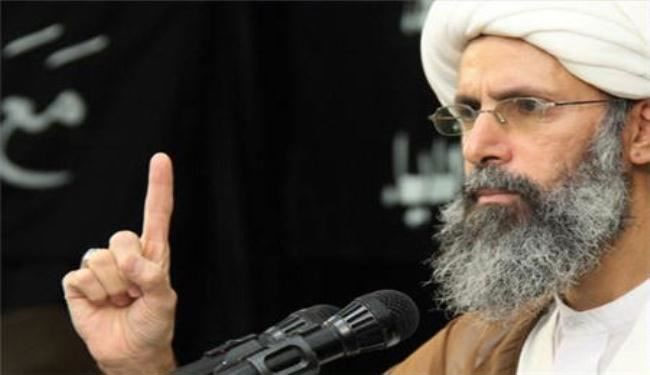IHRC strongly condemns today’s decision by a court in Saudi Arabia to impose the death penalty against Sheikh Nimr al-Nimr.
Sheikh Al-Nimr is a leading Shia scholar who was arrested for his outspoken criticism of the Saudi monarchy and his calls for equality and reform on trumped up charges of apostasy and terrorism. He has been severely tortured in detention.
Sheikh Al-Nimr was detained in 2012 following a police pursuit in Eastern Province of Qatif district which ended with him being shot in the leg four times in disputed circumstances. Officials said he rammed a security forces vehicle, leading to a gun battle. However, his family disputed the allegation that he resisted arrest and insisted that he did not own a weapon.
The sheikh’s arrest came against the backdrop of rising public unrest and dissension in Saudi Arabia as the Arab Spring took hold across the Middle East. Street protests started in Jeddah, and soon afterwards other protests flared up throughout the country. All the protests demanded more liberty, constitutional changes and an end to anti-Shia discrimination.
In the following year, new protests against the Saudi authorities’ decision to send troops to quell the revolt in Bahrain broke out in the Eastern province, where Sheykh Al-Nimr criticised the government’s policies and demanded constitutional reform. During these protests security forces used live fire against protestors, killing many and starting a series of arrests against demonstrators and the medical personnel who treated them.
The charismatic and outspoken cleric was held for eight months before being charged and reportedly spent the first four in an isolation cell at a prison hospital in Riyadh. Activists and relatives say Sheikh Nimr, who has a wide following among Shia in Eastern Province and other states, supported only peaceful protests and eschewed all violent opposition to the government. In 2011, he told the BBC that he supported “the roar of the word against authorities rather than weapons… the weapon of the word is stronger than bullets, because authorities will profit from a battle of weapons”.
Skeikh al-Nimr became a symbol of the uprising, and his arrest provoked an intensification of the protests calling for his immediate release resulting in an escalation of violence by the Saudi security forces. Human rights groups expressed concern at the time that he would not receive a fair trial.
The Specialised Criminal Court, Saudi Arabia’s terrorism tribunal, which handed down today’s sentence has been widely criticised for flagrant due process violations, including broadly framed charges that do not resemble recognisable crimes, and denial of access to lawyers at arrest and during pre-trial detention, making it almost impossible to prepare cases for trial. The court has also been criticised for dismissing without investigation allegations of torture and admitting as evidence confessions that defendants said were coerced.
According to a 2011 report compiled by IHRC, there are an estimated 30,000 political prisoners in Saudi Arabia out of a population of approximately 18 million Saudi nationals.
IHRC chair Massoud Shadjareh said: “It is outrageous that a religious personality of the stature of Sheikh al-Nimr can be sentenced to death for nothing other than standing up for justice and the human rights of all Saudi citizens. What makes it worse is that the Saudi regime has presented the opposition of which he has become a potent symbol as a sectarian revolt by the country’s Shia citizens.”
Notes to editors:
IHRC’s hard-hitting report into political prisoners, ‘Saudi Arabia’s Political Prisoners: Towards a Third Decade of Silence’, can be downloaded at https://ihrc.org.uk/attachments/article/9867/Saudi%20Report%20A4-v04.pdf
For media enquiries please email media@ihrc.org or call 020 8904 4222 or 07958 522196
——————————————————————————————
IHRC is an NGO in Special Consultative Status with the Economic and Social Council of the United Nations.
Islamic Human Rights Commission
PO Box 598
Wembley
HA9 7XH
United Kingdom
Telephone (+44) 20 8904 4222
Email: info@ihrc.org
Web: www.ihrc.org
Twitter @ihrc







